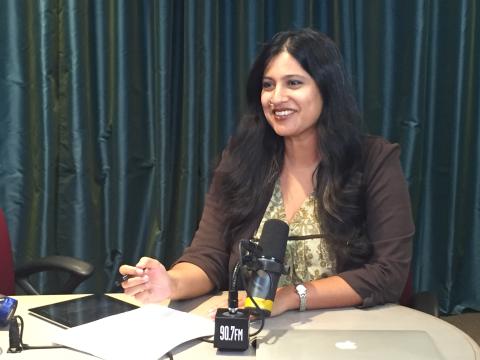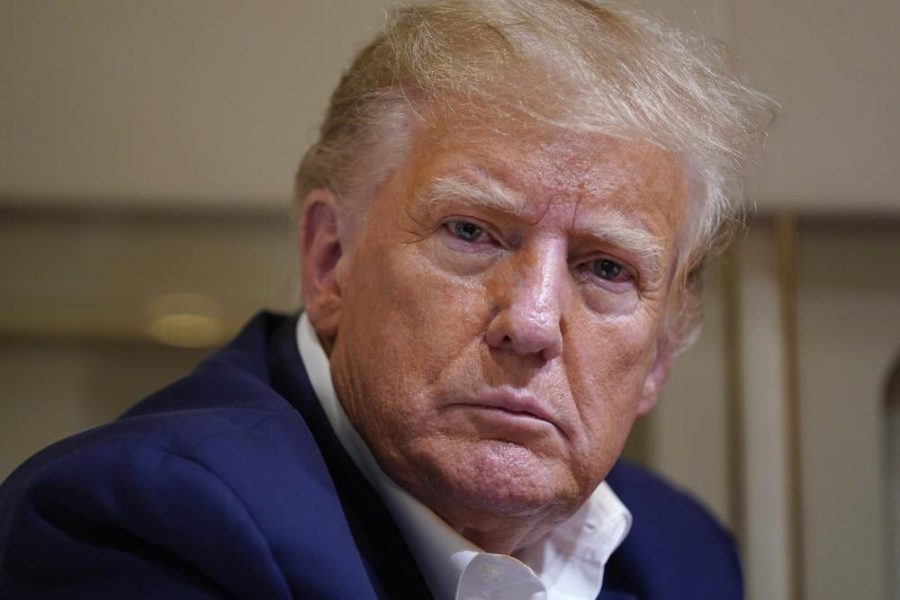When President Joe Biden said in a phone call to MSNBC’s Morning Joe recently, “I’m getting so frustrated with the elites… the elites of the party. I don’t care what the millionaires think,” former Labor Secretary Robert Reich wrote that, “It was the first time any modern president has admitted that the elites of the party are the millionaires (and billionaires) who fund it.”
While Biden’s comments were in reference to the movement to oust him from the 2024 Democratic presidential nomination, it was an important admission about who really wields power in our democracy.
We may think of elections in terms of one person, one vote. But, not only do undemocratic structures such as the electoral college dilute our votes, the money that elites flaunt places a hefty thumb on the scales of who represents us. Yet, we hear more about the threat of, say, immigrants than the threat of billionaires, to our democracy.
Billionaires have tried very hard to buy influence and political power. For example, former New York City Mayor Mike Bloomberg donated $20 million toward efforts to reelect Biden this year alone. Four years ago, Bloomberg spent a whopping $1 billion in just four months in an attempt to be the 2020 Democratic presidential nominee. In a testament to the fact that we have a modicum of democratic accountability left within the system as it stands, he failed spectacularly, as others have often done. Voters seem to have a distaste for electing the ultra-rich but have yet to disavow the de facto proxies that their money helps elect.
While billionaires remain influential within the Democratic Party, the last election for which spending records exist shows that moneyed elites overwhelmingly prefer the Republican Party. The nation’s 465 wealthiest people collectively donated $881 billion to influence the 2022 midterm elections, most of it to the GOP.
Now, the richest person in the world—not just in the United States—Elon Musk, has jumped into the 2024 race. His proxy, Donald Trump, in surviving an assassination attempt, earned Musk’s endorsement, as if that was somehow a qualification to run the nation. Musk has vowed to pour $45 million a month into a new Super PAC that’s working to elect Trump. The amount is pocket change for someone currently worth nearly $250 billion. Musk could spend $45 million a day every day this year and it would barely make a dent in his bottom line.
According to a New York Times analysis, Musk went from supporting Democrats to Republicans because he was “[a]ngry at liberals over immigration, transgender rights, and the Biden administration’s perceived treatment of Tesla.” At a meeting earlier this year that embodied the specter of a secret cabal of billionaires seeking to buy an election, Musk reportedly conversed with his fellow wealthy elites about Republican control of the U.S. Senate. At that meeting, he reportedly worried that “if President Biden won, millions of undocumented immigrants would be legalized and democracy would be finished,” as per the Times.
He is not the only one. The Republican Party as a whole has decided that undocumented people voting in U.S. elections is the single biggest threat facing the country—not billionaires like Musk raining down dollars to drown our democracy.
Undocumented immigrants are human beings, not dollar bills. And yet they hold far less sway over elections than Musk’s money. There is no mass amnesty for undocumented people in the U.S. currently—this isn’t Ronald Reagan’s America after all. And even if there was, there is a long, complicated path from legal status to the voting status that citizenship allows.
I should know, I have been there personally, having entered the U.S. as an immigrant on a student visa before obtaining legal residency and then citizenship. My journey was far more straightforward than that of Melania Trump and still, it was 18 years before I could legally vote after first stepping on American soil.
And yet every four years, immigrants become political footballs, flayed at the proverbial whipping posts of democracy for merely existing—usually by both political parties. Right-wing voters waved signs saying “Mass Deportations Now” at the Republican National Convention, while Democrats took a less vulgar approach by appeasing anti-immigrant forces with asylum restrictions, hoping it would garner voter support.
Sean Morales-Doyle, writing for the Brennan Center for Justice, asks us to imagine being an undocumented immigrant in the U.S.: “Would you risk everything—your freedom, your life in the United States, your ability to be near your family—just to cast a single ballot?” Not only are there harsh penalties, including prison time, for illegally casting ballots, but even the rabidly far-right Heritage Foundation has found only 85 cases of supposed undocumented voters out of 2 billion votes cast from 2002 to 2023. That works out to a 0.00000425 percent of the vote.
Let’s compare this to the influence of money on elections. The nonpartisan group Open Secrets, which tracks money in politics, finds that “the candidate who spends the most usually wins.” In 2022, about 94 percent of the candidates for the House of Representatives who spent the most money won their race, while 82 percent of those running for the Senate who spent the most money won their seats. Much of their donations come from Super PACs, which bundle high-dollar amounts from wealthy Americans.
While billionaires such as Bloomberg have had trouble getting themselves elected, they have had little trouble getting others elected—or unelected as the case may be. Already this year, moneyed interests in the form of the pro-Israel lobby group AIPAC, defeated progressive congressional representative Jamaal Bowman of New York in his primary election, and have their sights set on representative Cori Bush of Missouri next.
Should we be concerned about the imagined influence of undocumented immigrants or the actual influence of billionaire dollars on our elections? In a 2020 poll, Pew Research found that most Americans felt billionaires were neither good nor bad for the nation. Only about a third felt they were bad for the nation—roughly the same percentage that fears there is an effort to replace U.S. voters with immigrants for the purposes of electoral power.
USA Today writer Marla Bautista captured Musk’s role succinctly in asking, “Can Elon Musk buy Trump the White House?” It’s a valid question, one that we should be centering as election season heats up.
Think of the U.S. democracy as an old, large, sailing ship attempting to cross a vast ocean with all voters on board working to steer it across to shore. Every hole in its sail, every shark circling it, impacts its ability to succeed. In such a scenario, an undocumented person attempting to vote is akin to a speck of dust on the hull. Every million-dollar donation is a wave buffeting the ship. Enter men like Musk, whose money becomes a veritable tsunami aimed directly at democracy to overwhelm and topple it, destroying everything and everyone on board.
Sure, we may have sailed successful voyages most of the time (with the years 2000 and 2016 being among the worst exceptions). But with billionaire influence becoming larger every election, there’s an ever-increasing chance that democracy may not reach the shore. Will we be distracted by the dust on our hull or the massive wave rising before us?
Categories:
Who is a bigger threat to democracy immigrants or billionnaires?
Sonali Kolhatkar, Guest Columnist
August 24, 2024

Sonali Kolhatkar is the host and producer of Uprising, a popular, daily drive-time program on KPFK Pacifica Radion in Los Angeles and co-director of the women’s Afghan mission, a U.S. based non-profit organization that works with the Revolutionary Association of the women of Afghanistan.
Story continues below advertisement
0
More to Discover









